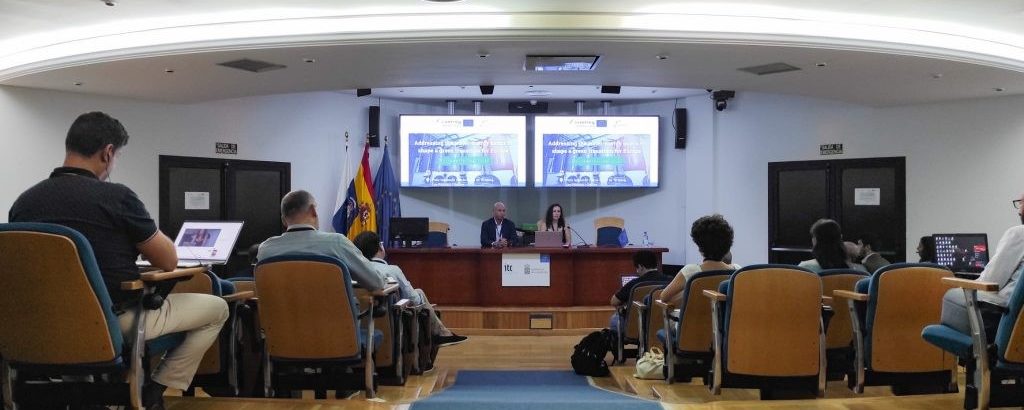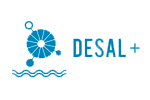More than 60 attendees participated at the final event of the European project EERES4WATER, organised by CTA (Technological Corporation of Andalusia) and ITC (Technological Institute of the Canary Islands) in Pozo Izquierdo (Las Palmas) and online, with the aim of promoting resource efficiency in the water cycle.
For more than three years and thanks to an Atlantic cooperation of 11 partners from 5 European countries, EERES4WATER focused on optimizing the energy management of the water cycle.
The project has implemented technological innovations and made common policy recommendations -at institutional, technical, and social level- to support the energy transition and achieve the objectives of the European Green Deal.
Collaboration to improve efficiency in the water cycle
The final event of the EERES4WATER project took place in the framework of the European Sustainable Energy Week (EUSEW), a reference meeting in the field of renewable energies organised by the European Commission (EC) from September 26th to 30th.
Under the title “Addressing the energy-water nexus to shape a green transition for Europe”, more than 60 attendees -representatives from industry, academia and regional, national and European public administrations– met at this meeting which, on-site and online, to know EERES4WATER’s contribution to the energy-water nexus in Europe.
The speakers shared policy recommendations, tools and technological solutions to promote resource efficiency in the water cycle. Although the EERES4WATER project has ended with this conference, the consortium leaders showed their interest in continuing to contribute to the energy-water nexus, emphasizing that this “is not an end point, but a point and a continuation to collaborate with new projects and research initiatives”.
Contributing to European sustainability from the energy-water nexus
Since 2019, EERES4WATER partners have been working on different technological innovations to make water management and energy-related processes more efficient.
Among the technologies developed is the creation of a software application that predicts water storages, pumping requirements and variable water treatments operation.
Sustainable technologies such as low-cost wave energy-powered desalination, solar-powered decontamination systems, and renewable energy-powered pumping systems have been developed.
Additionally, an Artificial Intelligence (AI) model has been developed to predict fecal indicator organisms and detect poor water quality in real time.
The EERES4WATER project has carried out 15 case studies to evaluate the introduction of renewable energy sources in different processes of the water cycle.
Moreover, the European project has carried out an energy efficiency labeling standard for water cycle processes and facilities. This will enable policy makers to regulate these facilities based on efficiency criteria to make better decisions when purchasing or investing in water cycle goods and services.
Thanks to the consortium’s know-how, 3 transnational services have been provided on innovative energy and water technologies in the fields of desalination and renewable energies.
Finally, EERES4WATER project has contributed to facilitating cheaper and more sustainable access to water for citizens in the Atlantic Area.
The EERES4WATER project is coordinated by CTA and co-financed by the INTERREGA tlantic Area Programme of the European Union (UE) through the European Regional Development Fund (ERDF).


